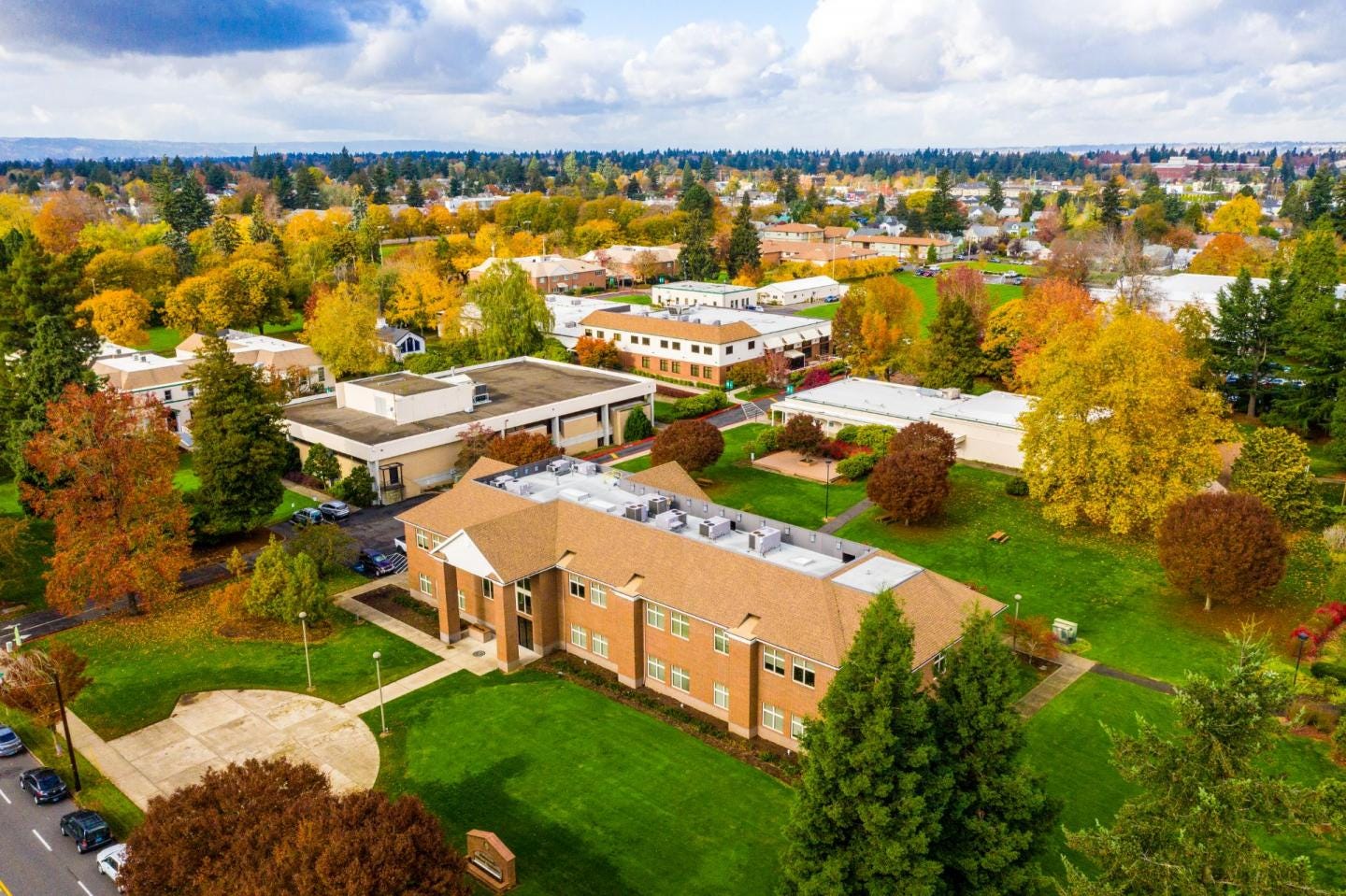The Multnomah Merger Could Be a Seminal Moment
The Multnomah merger into Jessup University may lead a shift in the structure of higher education among small, faith-based colleges and universities.
Since the news broke of Multnomah University in Portland, Oregon merging into William Jessup University - based in Rocklin, California - I have been wondering if this is a signal for a wave of similar moves, or a standalone situation that was mutually beneficial.
[You can read the official Press Release here]
An acquisition or merger is going to be preferable to a closure of any type; a closure is more than just unemployed professors, it disrupts or eliminates the education path for students, can shut down local contracted businesses, and have a major economic impact in the community in the case of small college towns. In that regard, this situation appears to be beneficial to all parties.
With regards to athletics, both schools are members of the NAIA, though Jessup is in the final months of their time as a member as they will be moving to the PacificWest Conference at the NCAA Division 2 level after this season.
The NAIA specializes in the membership of small, private, and religiously-affiliated schools, often with an undergraduate enrollment under 1000. In the 2021/22 school year, 130/235 NAIA schools with discrete EADA filings reported an enrollment below that threshold.
Multnomah is even smaller, reporting an enrollment of 289 in that 2021/22 school year. Their enrollment had reached a high of 636 in 2006/07 but consistently declining enrollment had made the prospect of closure appear inevitable.
And so they donated the physical school and all assets to Jessup University to convert the independent institution to a satellite campus. There will be adjustments to the courses and degrees offered as the academic offerings of the school change to align more with the areas in which Jessup University specializes.
The likely reality that nobody wants to talk about is that a sizeable contraction in the number of colleges and universities is somewhat unavoidable at this point. The smaller the school, the more sensitive it will be to nominal changes in enrollment and every year can be a struggle to balance a budget.
College networks are more common among public state-level schools, such as the University of California or California State University systems, but this somewhat unique solution from Multnomah could trigger a wave of similar moves from successful private schools.
These college networks don't even need to be in the same region. An example of this would be Ottawa University in Kansas which opened a secondary campus in Surprise, Arizona - known in athletic circles as OUAZ.
The consideration of handing over ownership and financial concerns to another party is somewhere between selfless and an act of self-preservation, but I can imagine governing boards of small cash-strapped schools across the country will be watching this situation closely and perhaps looking for an adoptive school with similar values that will keep as many people employed and in school as possible, at least in the shorter term.
But as a fan of college athletics, how does this affect the Multnomah athletic program?
The Multnomah Lions are a member of the Cascade Collegiate Conference of the NAIA and, as a small school, have a fairly small athletic program.
According their website they currently sponsor programs for:
Basketball M/W
Cross Country M/W
Soccer M/W
Track & Field M/W
Golf M
Volleyball W
This isn't a bad selection of sports for such a small school as they claimed approximately 56% of their student body as members of the athletic program in 2021/22, though that also included Men's and Women's Lacrosse programs that appear to have since been shuttered.
With Jessup University becoming an NCAA member, and considering the geography of where the Multnomah campus is situated, I am curious if they will be considering moving the athletic program to Division 3 if they can find membership in the Northwest Conference.
Removing athletic scholarships from the equation could improve the school's net discount rate against tuition while keeping operational costs low. The immediate issue is that at this time, the athletic program does not sponsor enough of the correct sports for D3 membership.
Multnomah only sponsors 2 Men’s team sports and they would need a third for D3 and Northwest Conference membership. The only sports which fit every requirement are baseball or football. And these are not the easiest sports to sponsor.
If an appropriate baseball facility could be sourced near their Portland campus, it would be an easier sport to operate both financially and with regards to school enrollment compared to football.
In that 2022FY the school claimed athletic scholarship expenses of over $2m or nearly 66% of their athletic department expenses and that alone should motivate the school to assess a change in membership.
Regarding a baseball program, they could get away with a roster of 30-35 individuals and an NWC average total expense for the sport of around $265,000. A bump to enrollment while reducing their discount rate would go a long way towards financial stability.
None of this is to disparage NAIA membership, just to highlight a possible path for the Multnomah Campus athletic program that may more closely align with the future of Jessup University.





This is an interesting topic for sure. I always thought that the Greater Portland area, in particular, was oversaturated with religious-affiliated liberal arts colleges. I believe a couple have shut down in recent years. The deal by Jessup for Multnomah seems similar to what happened to Cascade College and some Oklahoma school back in the day. They ended up shutting up over cash issues, which, as you mentioned, Jessup will be mindful of. Fun fact, Multnomah and Cascade College were actually only a few blocks apart.